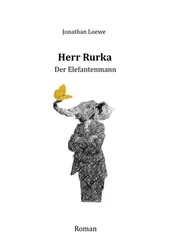Imagine arriving in the afterlife and not knowing if you were in heaven or hell.
“Excuse me,” you ask a passing angel, “where am I?”
“You’re gonna wanna ask the angel at the information desk.”
“And where would that be?”
But he’s gone.
You look around. A strong case could be made for it being heaven. A strong case could be made for it being hell. That is what IKEA is like.
By the time he was finished preparing his new house for the boys, Jacob had made half a dozen trips to IKEA, and even then he couldn’t discern if, on balance, he loved or loathed it.
He loathed the particleboard, the bookcases that needed books to keep them from floating away.
He loved imagining the scrutiny that had to be applied to every detail — the shortest functional length of a dowel that will be reproduced eighty million times — in order to sell things for prices that verged on magical.
He loathed the experience of passing someone whose cart’s contents were not only identical to his, but identically stacked. And he loathed the carts: three mortal enemies and one palsy case for wheels, and turning radiuses like rainbows — not the shape, but actual rainbows.
He loved the unexpected object — beautifully designed, perfectly named, and actually made from materials denser than shaving cream. That black marble Ädelsten mortar and pestle. Was it a loss leader? An act of love?
He loathed the machine that punched that poor chair over and over, punched it all day every day and probably through the night, confirming both the resilience of the chair and the existence of evil.
Jacob sat himself on a sofa — green velvet-like upholstery holding in whatever is the opposite of kelp and pony hair — and closed his eyes. He’d been having a hard time falling asleep. For a long time. But this felt OK. Despite the river of strangers passing in front of him, and occasionally sitting beside him to test the comfort, this felt safe. He was in his own world in that world that was in its own world in the world. Everyone was looking for something, but there was an endless supply, so no one’s gratification had to come at anyone else’s expense — there was no need to fight, no need even to disagree. So what that it was utterly soulless? Maybe heaven wasn’t populated by souls, but emptied of them? Maybe this was fairness?
He was awoken by what he at first thought was the punching of that depraved machine, as if his resiliency were being violently challenged again and again and again. But it was just the tapping of a friendly angel.
“We’re closing in ten,” she said.
“Oh, I’m really sorry,” he said.
She asked, “For what?”
* * *
By the time of the earthquake, Jacob would walk downstairs every morning not wondering if Argus had pooped, but where and with what solidity. It was a horrible way to start a day, and Jacob knew it wasn’t Argus’s fault, but when time was of the essence and kids weren’t cooperating robotically, poop in four places could force a meltdown.
“Jesus Christ, Argus!”
And then one of the kids would come to Argus’s rescue: “He can’t help it.”
And then Jacob would feel miserable.
Argus made Rorschachs of persians and orientals, relocated the stuffing of upholstered furniture to closets and his stomach, and scratched wood floors like Grand Wizard Theodore. But he was theirs.
Everything would have been so much easier if Argus were suffering — not just uncomfortable, but in deep pain. Or if a vet could find cancer, or heart disease, even kidney failure.
When Jacob told Julia he was going to Israel to fight, she told him he had to put down Argus first. He didn’t, and she didn’t mention it again. But when he came home from not leaving, it was an open, if invisible, wound.
In the following months, Argus’s condition worsened along with everything else. He started whining for no obvious reason, paced before sitting down, ate less and less until he hardly ate at all.
* * *
Julia and the boys would be there any minute. Jacob wandered through the house, noticing the imperfections, adding to the infinite mental punch list of things that should be taken care of: the cracked grout in the dripping shower; the sloppy bit of overpainting where the hallway wall met the floor; the torqued vent in the dining room ceiling; the fussy bedroom window.
The doorbell rang. Then rang again. Then rang again.
“Coming! Coming!”
He opened the door to smiles.
“Your doorbell sounds weird,” Max said.
Your doorbell.
“It does sound a little weird. Weird good? Or weird bad?”
“Maybe weird good?” Max said, and that might have been his opinion, but it might have been kindness.
“Come in,” Jacob said. “Come. I have some great snacks — Cheddar Bunnies; the truffle cheese you like, Benjy; those lime tortilla chips, Max. And the whole line of Italian sodas: aranciata, limonata, pompelmo, clementine.”
“We’re good,” Sam said, smiling as if for a family photo.
“I’ve never even heard of pompelmo,” Max said.
“Neither had I,” Jacob said. “But we’ve got it.”
“I love this place,” Julia said, quite sincerely and convincingly, despite it being a scripted line. They’d rehearsed the visit, just as they’d rehearsed the divorce conversation, and how to share the new schedule of moving between houses, and so many other experiences too painful to have only once.
“So do you guys want a tour? Or do you want to just explore it yourselves?”
“Maybe explore?” Sam said.
“Go on. Your names are on the doors of your rooms, so you can’t miss them.”
He heard himself.
The boys went upstairs, slowly, deliberately. They didn’t speak, but Jacob could hear them touching things.
Julia hung back, and waited until the kids were on the third floor before saying, “So far, so good.”
“You think?”
“I do,” she said. “But it’ll take time.”
Jacob wondered what Tamir would have to say about the house, should he ever see it. What would Isaac have said? He spared himself the move to the Jewish Home, unaware that he was also sparing himself Jacob’s move — and sparing Jacob.
Jacob led Julia into what would become the living room — emptier now than if it had never been enclosed by walls. They sat on the only piece of furniture, the green sofa that Jacob had fallen asleep on a few weeks before. Not that exact sofa, but one of its two million identical siblings.
“Dusty,” she said. And then: “Sorry.”
“No, it is. Horribly.”
“You have a vacuum?”
“I got the kind we have,” Jacob said. “We had? You have? And I mop it, too. All the time, it feels like.”
“There’s dust in the air, from the work. It keeps settling.”
“How does one get dust out of the air?”
“Just keep doing what you’re doing,” she said.
“And expect a different result? Isn’t that the definition of insanity?”
“Do you have a Swiffer duster?”
“Excuse me?”
“I’ll get you one. They’re really useful.”
“I can get it if you send me the link.”
“At that point it’s easier for me to just get it.”
“Thanks.”
“Do you feel OK about Argus?”
“No.”
“You should.”
“My feelings have never once cared about what they should be.”
“You’re good, Jacob.”
“Compared to what?”
“Compared to other men.”
“I feel like I’m bailing water with a colander.”
“If life were easy, everyone would do it.”
“Everyone does.”
“Think about how many trillions of trillions of people are never born for every one who is.”
“Or just think about my grandfather.”
Читать дальше












